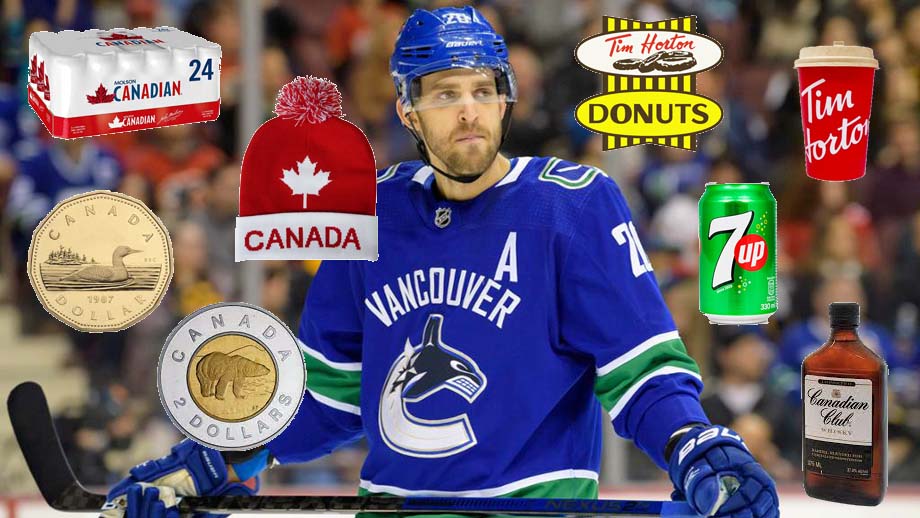There are a lot of things you have to learn from scratch if you're thinking about moving to Canada, and Canadian slang is just one of them.
In fact, there are some phrases that are so unheard of outside the country you might very well think Canadians are speaking their own language!
Whether you're moving to British Columbia, or just visiting Sooke, you're bound to hear a Canadian slang term at some point.
From loonies and toonies to the classic double-double, here is some common Canadian slang all newcomers in Canada should acquaint themselves with ASAP to avoid major confusion.
After all, you don't want to be caught off guard, eh?
Double-Double
Canadians love their coffee, and a double-double is probably one of the most essential Canadian slang words to get acquainted with.
To put it simply, a double-double is a regular coffee with two creams (or milk), and two sugars and it's delicious.
It's usually used in connotation with Tim Hortons, a popular spot in Canada, so if you ask for a double-double at other coffee shops, there is a chance you'll be met with a blank stare.
Loonies and Toonies
These words may sound like the names of cartoon characters but loonies and toonies actually refer to Canadian coins.
A loonie refers to a Canadian one-dollar coin.
Why?
Because it actually displays a loon, a North American bird, on it.
Similarly, toonie refers to a two-dollar coin.
And yes, it basically combines the words "two" and "loonie."
Timmies
It may seem pretty obvious but since it's bound to come up, get used to these various iterations of Tim Hortons.
Timmies as Canada's favourite coffee chain has quite the fan following, and nicknames are just part of that.
You might also hear Timbits quite a bit, and they're basically the coffee retailer's version of donut holes.
Just roll with it.
A Two-Four
A Canadian saying that means a case of 24 beers.
Although this Canadian slang term may be common enough in Canadian culture, there are certain parts of the country that may have no idea what you're talking about if you ask for a two-four, like French-Canadian Quebec.
Mickey
Speaking of alcohol, a "mickey" is a common Canadian word for a 375 millilitre bottle of liquor.
More self-explanatory terms for bottle sizes include a "twenty-sixer" (26 ounces - 750 millilitre) and a "forty-pounder" (1.14 litres or roughly 40 ounces).
Canuck
Another one that's sure to come up at some point during your time in Canada.
Canuck is simply slang for a Canadian.
While I haven't actually heard it said out loud too often, it's pretty common in Canadian media.
There's also a hockey team named the Canucks.
Pop
If someone in Canada offers you a pop, they're not offering you a lollipop.
Actually, they're referring to a soda or soft drink like Coke or 7 UP.
That's right, pop is just another way to describe a fizzy drink.
Toque
Considering how cold it gets in Canada, you might want to acquaint yourself with winter gear (and its various names) pretty fast.
For instance, long johns are basically a replacement for thermal underwear, and toque, a French word adapted to Canadian English, is a type of cloth hat some non-Canadians might call a beanie.
Bud
This one is pretty easy to understand.
Canadians really are friendly people and hearing "bud" or "buddy" is totally normal.
In fact, you don't even have to be friends with someone for them to call you bud.
In some parts of the Great White North, it's perfectly normal to hear it from a complete stranger at the end of a casual sentence.
Snowbirds
No, this is not some wondrous bird that thrives in the harsh Canadian winter.
Snowbird is a slang word for Canadians, typically seniors and retirees, who leave Canada during the cold winter months and travel south to warm, sunny, destinations for an extended period.
The United States is a popular destination, with many snowbirds flocking to Florida (where they'll have American slang to contend with).
Eh?
And, finally, while this isn't slang in a traditional sense, you might just hear it a lot when you move to Canada.
It's a simple way to emphasize something or to imply "You know what I mean?", or "Right?" in conversation.
The more ya know, eh?
Janice Rodrigues.
(likely no image with original article)
(usually because it's been seen before)
provisions in Section 29 of the
Canadian Copyright Modernization Act.

